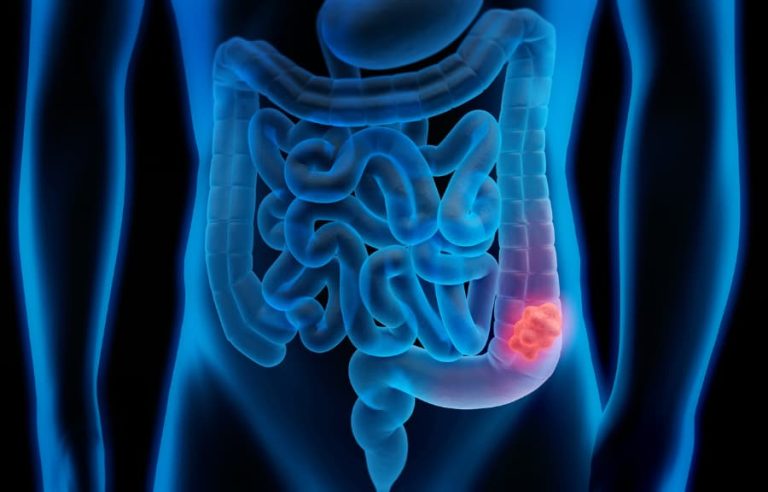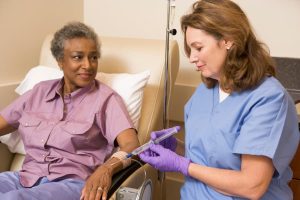
Signs of Precancerous Colon Conditions
Adenomatous polyps are a precancerous condition. They are not cancerous by themselves and are often largely harmless. Their presence, however, indicates abnormal changes to colon
HIPAA Alert: Potential Data Breach Learn More
Questions on Oncology, Hematology and/or Infusion Clinical Services due to COVID-19 Crisis – CALL 833-698-1623
Important Information for Our Patients Regarding the Coronavirus.
RCCA Providing Area Cancer Patients with Access to Care During Coronavirus Outbreak
RCCA Offering Patients Virtual Visits During Coronavirus Pandemic
Colon cancer staging is a process that physicians employ to determine the extent of a patient’s cancer and to decide which treatment approach will be most effective. Serving patients in New Jersey, Connecticut, Maryland, and the Washington, D.C., area, the medical oncologists and hematologists of Regional Cancer Care Associates (RCCA) treat the full range of cancers and benign blood disorders, including colon cancer. Learn more about the different colon cancer stages from our experienced cancer specialists.
After physicians identify colon cancer in a patient, they assess the extent – if any – to which it has spread from the location where it developed. assess This information is used to determine the cancer’s stage, which can range from 0 to 4, as follows:
In this stage, the cancer is found only in the mucosa, the lining on the inside of the colon or rectum, and has not spread to other areas of the colon or to tissues outside the colon.
When cancer has spread to other areas of the colon, such as the submucosa or the muscularis propria, but not to nearby lymph nodes or other tissues, it is classified as Stage 1.
Stage 2 colon cancer includes any cancer that has progressed further throughout the colon and body. This stage has three different sub-groups:
In Stage 3, colon cancer has spread to nearby lymph nodes but has not spread to other parts of the body. Similar to Stage 2, Stage 3 colon cancer can be categorized into three sub-stages. These include:
Stage 4 colon cancers have spread from the colon to distant organs and tissues. Colon cancer most often spreads to the liver, but it can also spread to other sites, including the lungs, brain, peritoneum (the lining of the abdominal cavity), or distant lymph nodes. Stage 4 colon cancer also has several sub-groups, including:

Many factors can increase a person’s risk of developing colon cancer. For example, if a patient has already had colon cancer, it may return. Past radiation therapy for colon cancer or another disease can also increase a patient’s risk.
In addition, unhealthy lifestyle choices such as inactivity, eating fatty foods, smoking, and excessive alcohol use may increase the chances of developing colon cancer. Other risk factors include age, family history, and some chronic intestinal conditions such as Crohn’s disease.
People with early colon cancer may not experience symptoms. But as cancer worsens, signs may arise. Symptoms vary for each person depending on the location and size of the cancer. Common colon cancer symptoms include:
The lower the stage of a patient’s colon cancer (such as Stage 0 or 1), the more likely treatment will be successful. The five-year survival rate for colon cancer that has not spread beyond the organ is 91%, but this number drops to 14% once it has reached distant parts of the body.
Because of this, early diagnosis of colon cancer is crucial for achieving the best possible outcomes. Physicians employ a number of approaches to treat colon cancer, including:
A patient often will receive more than one form of therapy, such as surgery followed by chemotherapy or by radiation therapy. The wide variety of treatment approaches and medications available to treat colon cancer enables the cancer specialists of RCCA to design and implement highly individualized treatment plans for each patient.
The expert, compassionate medical oncologists of Regional Cancer Care Associates help patients with colon cancer by first determining the extent of the condition and by then creating a personalized treatment plans to achieve the best possible outcomes while working to maintain patient quality of life. With more than 20 locations in New Jersey, Connecticut, Maryland, and the Washington, D.C., area, our experienced medical team provides comprehensive care for people facing cancer or a blood disorder. To learn more about the colon cancer stages and treatment options or to make an appointment, contact us today.
From the moment you have you first appointment at one of RCCA’s 25+ locations, you’ll experience quality care that only our highly trained oncologists can provide. We’ll take the time to help you understand your diagnosis and your options, so you and your doctor can devise the best treatment plan for your unique situation. You’ll also have access to clinical trials, putting you at the forefront of innovations in the field of colon cancer care.
To learn more about colon cancer treatment at RCCA or to schedule an appointment, reach out to us at 844-346-7222.

Adenomatous polyps are a precancerous condition. They are not cancerous by themselves and are often largely harmless. Their presence, however, indicates abnormal changes to colon

Colon cancer is among the most common cancer types diagnosed in the United States. According to colon cancer projections from the American Cancer Society, about

If you or a loved one has been diagnosed with colon cancer, identifying the treatment approach that’s best for you and your particular circumstances is
When standard cancer treatments aren’t providing the results you want, clinical trials may offer hope. Our physicians use clinical trials to study new treatments, helping transform cancer care for the better. You can enroll in a clinical trial to try groundbreaking treatment plans at zero cost to you.

Regional Cancer Care Associates is one of fewer than 200 medical practices in the country selected to participate in the Oncology Care Model (OCM); a recent Medicare initiative aimed at improving care coordination and access to and quality of care for Medicare beneficiaries undergoing chemotherapy treatment.